The number of hotel and flight bookings from China to Thailand has increased sharply after the Golden Temple country exempted visas for Chinese visitors from September 25.
China is entering its longest holiday of the year. Trip.com, the company that operates the country's largest travel booking platform Ctrip, said the number of overseas travel bookings by Chinese tourists was nearly 20 times higher than during the same period last year.
After Thailand announced its visa waiver program, hotel bookings by Chinese tourists in the Golden Temple country increased by 6,220% compared to the same period last year. Thailand is predicted to be the top destination for Chinese tourists this holiday, followed by South Korea, Malaysia, Singapore, Australia and the United Kingdom.
In September, the Thai government announced a visa-free policy for Chinese and Kazakh tourists, effective from September 25 to February 24 of the following year. The policy was introduced just in time for the Chinese people's "golden week". Golden week is the longest holiday in China, combining the Mid-Autumn Festival and National Day, starting on September 29 and lasting until October 6.
Gary Bowerman, founder of Check-in Asia, a travel research and marketing firm, said Thailand's new visa-free strategy is well-timed to coincide with the upcoming Chinese Golden Week, Christmas and Lunar New Year holidays.
In addition to easing visa policies, Thai officials have taken concrete steps to show their desire to attract Chinese tourists. On September 25, Thai Prime Minister Srettha Thavisin and tourism officials went to Suvarnabhumi Airport (Bangkok International Airport) to welcome and present gifts to Chinese tourists who had just arrived from Shanghai.
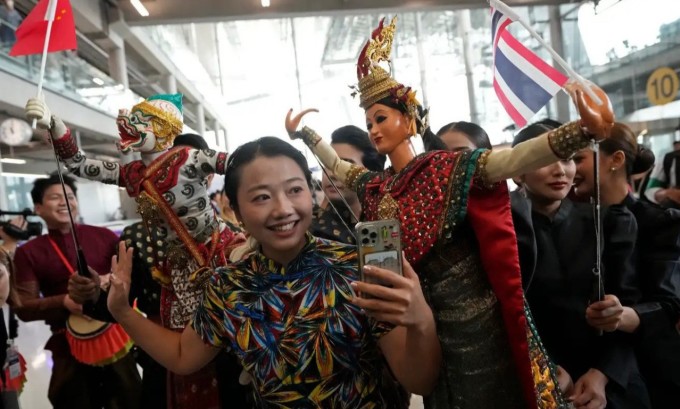
Puppet show to welcome Chinese visitors at Suvarnabhumi International Airport, September 25. Photo: AP
Mr Srettha believes the move to relax visa policies will "boost the economy significantly".
"We want to welcome more Chinese tourists, not only in big cities like Chiang Mai, Bangkok, Pattaya and Phuket. Hopefully, they will visit small towns, stay longer and increase their spending," the Thai prime minister said.
According to the Tourism Authority of Thailand, the country welcomed nearly 11 million Chinese visitors in 2019, accounting for more than a quarter of total international arrivals. In the first nine months of 2023, Chinese visitors were only 2.2 million.
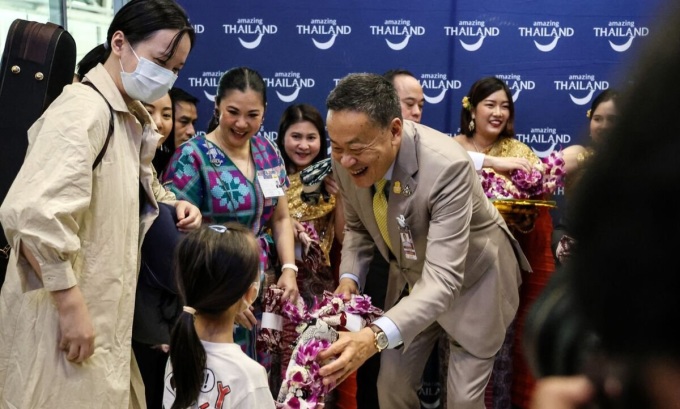
Thai Prime Minister Srettha Thavisin welcomes Chinese tourists at Suvarnabhumi Airport in Bangkok. Photo: Bloomberg
In the first seven months of the year, China was absent from the list of Thailand's largest tourist markets for the first time in a decade, the Thai Ministry of Tourism and Sports announced in August.
Earlier this year, many Chinese social media users expressed concerns about visiting Thailand, amid rumors that tourists could be kidnapped and taken across the border to work in scam centers in Myanmar or Cambodia. The hashtag “why don’t people want to travel to Thailand” was viewed 420 million times on Weibo and was the top trending topic on China’s largest social media site last month. Many users said they feared being lured into scams. Some said the visa application process at the time was taking too long.
Sisdivachr Cheewarattanaporn, president of the Thai Travel Agents Association, said “negative reports about Thai tourism” had prompted the government to rebuild confidence among Chinese tourists. He added that the rumors were “false” and that the illegal activities were taking place in Myanmar and Cambodia, not Thailand. Despite the slow growth of recent months, the Thai tourism industry is betting on a boom in Chinese visitors during the upcoming holidays.
"The situation is getting better, travel companies are ready to welcome guests," Sisdivachr said.
Not only Thailand, Southeast Asian countries hope that the Chinese market will contribute to the recovery of the tourism industry. However, since opening up in early 2023, the Chinese economy has stagnated, the yuan has depreciated, and people have limited their overseas travel. Southeast Asian destinations that rely heavily on Chinese tourists must lower their expectations and prepare for a longer recovery.
The founder of travel research company Check-in Asia said that Chinese outbound travel trends have changed a lot since the pandemic, with a large number of Chinese tourists looking for different travel experiences on a low budget.
Bich Phuong (According to CNN )
Source link












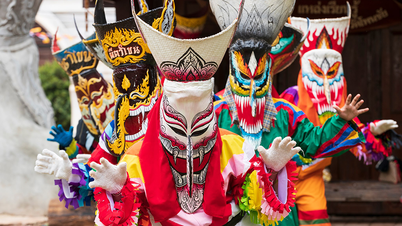





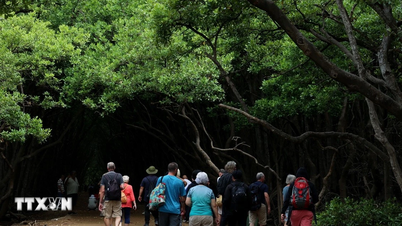





















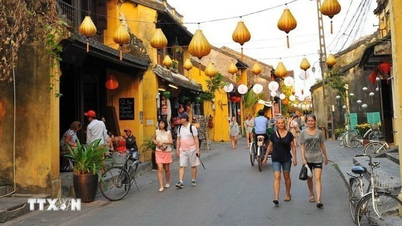






















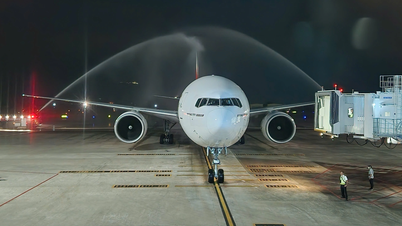




































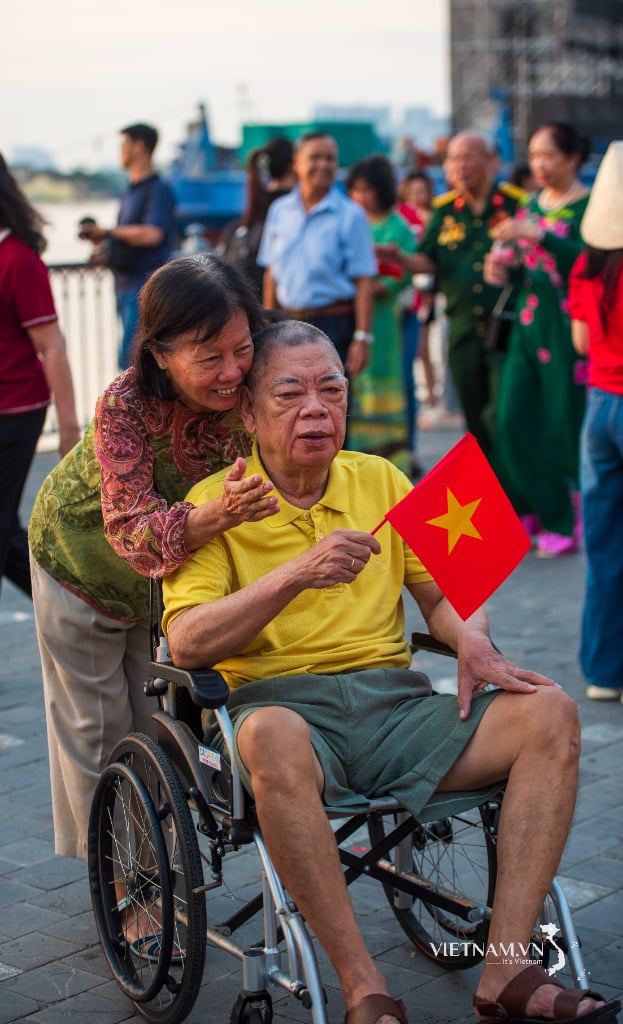
Comment (0)